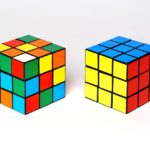I was sitting in a coffee shop, trying to drown out the conversation at the next table between a mother and a teenage son with my own mental chatter. But I was failing.
Steve Jobs dropped out of college, and look how well he turned out.
I felt an itch in my throat, a desire to get on my high horse, but I kept my mouth shut. If I would have let myself speak, here’s what I would said.
You’ve fallen victim to the survival bias. You’re seeing only the winners, not the losers (and with a large enough population, you can always find winners). For every Branson, Jobs, and Zuckerberg, there’s a hapless person who made a terrible mistake by dropping out of college. But those people don’t make the news.
College isn’t for everyone. Going to college because it’s the default option, or because you can’t think of anything better to do, is a bad idea. There’s a bubble in university education that will burst soon enough. Particularly if you plan to treat college like a four-year party, you’d be better off by taking that 150 grand, hopping on the next Vegas flight, and putting it all on red.
But this doesn’t mean you blindly chase a college dropout’s path to success.
Lightning rarely strikes the same spot twice. You can’t drop out of Reed College, sit in on a calligraphy class, take some LSD, dabble in Zen Buddhism, set up shop in your garage, and expect to start a wildly successful computer company. Sorry. That path is already taken.
By the time you’re done setting up your lightning rod in the last place where it struck big, it’s already too late. The world has moved on.
Yet we still search for that formula, that “proven” shortcut to success, that life hack that will finally make things right. Businesses chase the latest fad or trend and mimic the strategies of their competitors.
But the same path that led to glory for one can cause catastrophe for another. Bad decisions can lead to good outcomes. And when we emulate those bad decisions, we may not get as lucky. As Warren Buffett put it, “The five most dangerous words in business are ‘Everybody else is doing it.’”
What’s more, it’s possible that some of these titans became successful—not because of their path—but in spite of it. We focus on the visible results, but neglect to ask: What’s missing? What am I not seeing? Perhaps Steve Jobs would have been even more successful (hard to fathom, I know) if he hadn’t dropped out of Reed. Perhaps the scantily clad woman in that fitness commercial has a six pack—not because of the workout program or supplements she’s peddling—but in spite of them. Perhaps the man who put on twenty pounds of muscle in one month by working out once a week has superhuman genes that you lack.
Success and failure often have multiple causes. We assume that one specific variable caused the result when, in fact, multiple causes acted in combination to achieve the outcome. We fail to ask, “What else could have caused this result?” We also underestimate the enormous role that blind luck plays. We attribute to skill or genius what should be chalked up to coincidence.
Mimicking others isn’t just an innocuous exercise. In so doing, we let ourselves off the hook. We tell ourselves that if we only had the right “tactic, routine, or habit” of a “world class performer,” we’d be all set. Hence the recent Internet obsession with people’s morning routines, creative routines, Sunday routines, writing routines, as if the right routine were the only missing piece of an otherwise complete puzzle. We pretend that copying from success stories is an acceptable strategy, so we don’t put in the hard work required to pave our own path.
We should be informed by the greats, not be constrained by them. Read about the titans and learn from their mistakes. But don’t put them on a pedestal, fetishize them, or attempt to copy and paste their path to success.
You’re much better off forging your own.
Bold



